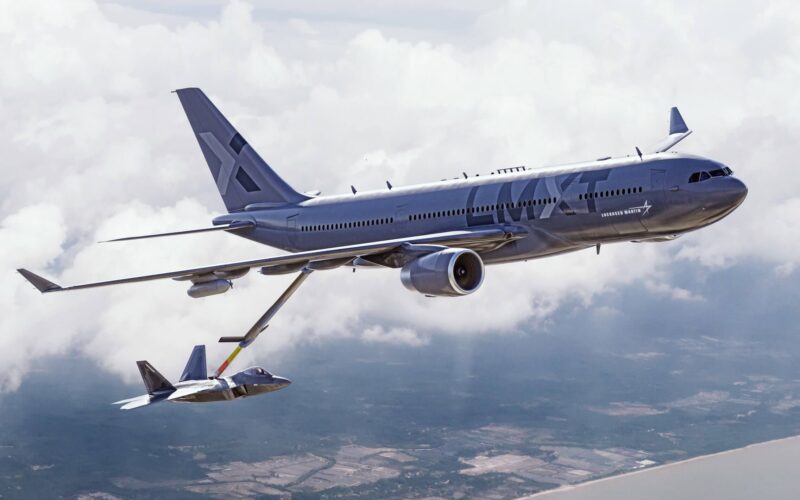Lockheed Martin presented the LMXT, a variant of the Airbus A330 MRTT that it has tailored for the US Air Force’s KC-Y program.
With the second part of the United States Air Force fleet modernization project about to begin, Lockheed Martin unveiled its proposal on September 17, 2021. The aircraft, heavily based on Airbus’ tanker, will offer an extra 12 tons of fuel compared to the A330 MRTT of other operators (and 27 tons more than Boeing’s KC-46 Pegasus.) The manufacturer did not specify how that increased capacity would be achieved.
“Lockheed Martin has a long and successful track record of producing aircraft for the U.S. Air Force, and we understand the critical role tankers play in ensuring America’s total mission success,” said Greg Ulmer, executive vice president of Lockheed Martin Aeronautics, in a statement. “The LMXT combines proven performance and operator-specific capabilities to meet the Air Force’s refueling requirements in support of America’s National Defense Strategy.”
Though Lockheed Martin advertised the LXMT as “the next American tanker aircraft, built in America, by Americans, for Americans,” it did not specify where exactly it would be assembled. In its bid for the previous KC-X program, Airbus planned for the final assembly of its A300 MRTT to take place in Mobile, Alabama.
Airbus’ second chance
Since the turn of the millennium, the USAF has been attempting to modernize its fleet of aerial refuelers. After several stalled attempts, it was decided in 2007 to renew the fleet in three installments, known as the KC-X, KC-Y and KC-Z programs.
It was Airbus (partnered with Northrop Grumman at the time) that initially won the KC-X tender launched by the Pentagon for a new refueling system to equip the United States Air Force. With its A330 MRTT already in production, the European manufacturer was way ahead of its rival Boeing, whose KC-46 Pegasus was still on the drawing board.
However, political concerns dogged the acquisition process, and after several years of lobbying, the contract was taken away from Airbus and put back out for tender by the USAF. In 2011, Boeing was awarded the contract after what was described as an “aggressive” offer by its European competitor.
The development of the KC-46 Pegasus tanker has since exceeded forecasts by over $5 billion, with the initial cost of the contract with the USAF predicted at $4.9 billion. Nine critical problems have been identified after its delivery in January 2019.
The USAF is expected to launch the tender for the second program sometime in 2022. The aircraft selected by the KC-Y competition will act as a “bridge tanker” between the first batch of 179 Boeing KC-46A tankers, ordered following the KC-X tender, and a third program known as KC-Z. The latter will see manufacturers compete with a completely new and innovative design, whose requirements remain to be revealed.

